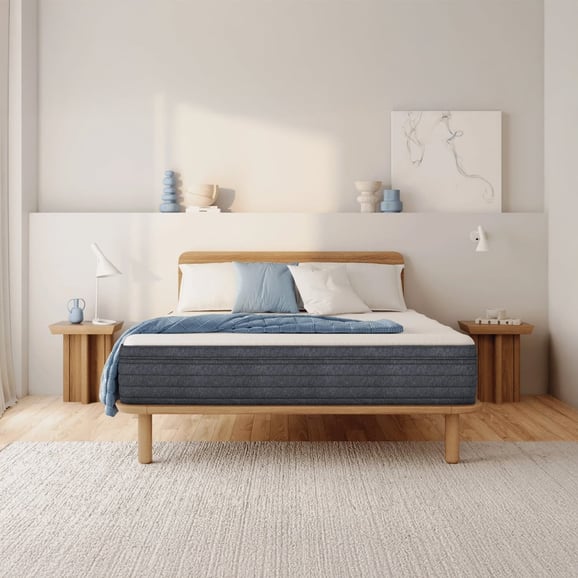Sleep can be an increasingly hard thing to come by in our fast-paced world. Work hours are growing longer and with the working public coming under additional strain in recent years, there is little time to get the rest our bodies need. But the truth is, restful sleep is essential for our physical and mental well-being. If you’re looking for ways to rest and relax, you’ve come to the right place. In this article, we’ll be exploring the proven strategies you can use to get the rest you need to stay healthy and energised.
Introduction: How to Sleep Better
Getting a good night’s sleep is one of the most important things you can do for your overall health and well-being. A good night of REM rest can help you stay alert and energised throughout the day, improve your mood, and even help you achieve your fitness goals. Unfortunately, not all of us are able to get the rest we need. If you’re having trouble, there are a few things you can do to improve the quality and duration of it.
The first step is to understand why you’re having trouble nodding off. Once you’ve identified the cause of your insomnia, you can then begin to implement the strategies outlined in this article to get the restful sleep you need.
Benefits of Getting a Good Night’s Sleep
Getting a good night’s sleep is essential for our physical and mental health. It helps to improve concentration and focus, boost our mood and energy levels, and even help us maintain a healthy weight. Sleeping well can also help to reduce stress, enhance our creativity, and improve our memory.
In addition to the physical benefits, REM can also help to improve our mental health. Studies have shown that people who sleep better are more likely to be happier, have less anxiety and depression, and be better able to handle stress.
Causes of Poor Sleep
There are a variety of factors that can disrupt our sleep, including lifestyle habits, environmental factors, and disorders. Some of the most common causes of poor sleep include:
Stress : Stress can disrupt our body’s natural circadian rhythm, making it difficult to fall asleep.Caffeine : Caffeine is a stimulant that can stay in your system for up to 8 hours, making it hard to fall asleep.Alcohol : Alcohol may help you fall asleep faster, but it can also disrupt your cycle, leaving you feeling groggy and tired the next morning.Light : Exposure to bright light in the evening can prevent your body from producing melatonin, the hormone that helps you fall asleep.Noise : Noise can disrupt your sleep, preventing you from getting the restf you need.Temperature : Too hot or too cold of a room can make it difficult to stay asleep.Medications : Certain medications can interfere with sleep, including some antidepressants and blood pressure medications.
Sleep Hygiene Practices
Sleep hygiene practices are simple habits that can help you rest better. Some of the most effective hygiene practices include:
Establishing a consistent sleep schedule: Going to bed and waking up at the same time each day can help to regulate your body’s internal clock, making it easier to fall asleep and stay asleep.Avoiding caffeine and alcohol: Caffeine and alcohol can both interfere with your sleep, so it’s important to limit your intake of both, especially in the late afternoon and evening.Avoiding screens before bed: The blue light from screens can disrupt your body’s natural circadian rhythm, making it harder to fall asleep.Avoiding big meals close to bedtime : Eating a large meal close to bedtime can make it harder to sleep deeper and for longer.Exercising regularly: Regular exercise can help to improve the quality of your sleep.Practicing relaxation techniques: Relaxation techniques such as yoga, meditation, and deep breathing can help to reduce stress and anxiety, making it easier nod off.
Sleep Environment Tips
The environment in which you sleep can have a big impact on the quality of your sleep. Here are some tips for creating a sleep-friendly environment:
Keep your bedroom cool, dark, and quiet: Keep the temperature of your bedroom cool (around 16-18 degrees Celcius) and make sure it’s dark and quiet.Invest in a comfortable mattress and bedding: Make sure the mattress and bedding you use are comfortable and supportive.Remove electronics from the bedroom: Electronics, such as TVs and phones, can disrupt your sleep, so it’s best to keep them out of the bedroom.Add blackout curtains: Blackout curtains can help to block out light and noise, making it easier to fall asleep.Use a white noise machine: A white noise machine can help to block out disruptive noises, making it easier to stay asleep.
Bedtime Routines
Having a consistent bedtime routine can help to prepare your body for sleep, making it easier to fall asleep and stay asleep. Here are some bedtime routine tips:
Avoid screens and bright lights an hour before bed: The blue light from screens can disrupt your body’s natural circadian rhythm.Take a warm shower or bath: Taking a warm shower or bath can help to relax your body and mind.Read a book: Reading can help to distract your mind and reduce stress, making it easier to drift off.Listen to calming music: Listening to calming music can help to reduce stress and anxiety, making it easier to relax.Practice relaxation techniques: Relaxation techniques such as yoga, meditation, and deep breathing can help to reduce stress and anxiety.
Diet and Lifestyle Changes to Improve Sleep
Making a few changes to your diet and lifestyle can help to improve your sleep. Here are some tips for improving your sleep through diet and lifestyle changes:
Limit caffeine and alcohol: Caffeine and alcohol can both interfere with your sleep, so it’s important to limit your intake of both, especially in the late afternoon and evening.Eat a balanced diet: Eating a well-balanced diet can help to regulate your body’s natural circadian rhythm, making it easier to stay asleep.Exercise regularly: Regular exercise can help to improve the quality of your sleep.Avoid nicotine: Nicotine is a stimulant that can stay in your system for up to 8 hours, making it hard to nod off.Avoid large meals close to bedtime: Eating a large meal close to bedtime can make it harder to fall asleep.
Exercise and Relaxation Techniques to Help You Sleep
Getting regular exercise and practicing relaxation techniques can help to improve your sleep. Here are some tips for getting better sleep through exercise and relaxation:
Exercise regularly: Regular exercise can help to improve the quality of your sleep.Practice relaxation techniques: Relaxation techniques such as yoga, meditation, and deep breathing can help to reduce stress and anxiety, making it easier to promote positive thoughts.Take a warm shower or bath: Taking a warm shower or bath can help to relax your body and mind, making it easier to rest.Listen to calming music: Listening to calming music can help to reduce stress and anxiety, loosening your body and getting you into the right frame of mind to sleep.
Professional Treatments for Insomnia
If you’re having trouble getting a good night’s sleep, it may be time to consult a professional. A certified sleep specialist can help to diagnose any underlying issues and provide personalised treatment recommendations. Treatments for insomnia may include cognitive behavioural therapy, medications, or lifestyle modifications.
Conclusion: How to Sleep Better
Getting a good night’s sleep is essential for our physical and mental health. If you’re having trouble getting what you need, there are a variety of strategies you can use to improve the quality and duration of sleep. These strategies include hygiene practices, environment tips, bedtime routines, diet and lifestyle changes, supplements and herbal remedies, exercise and relaxation techniques, and professional treatments. You can also use apps and devices to track and improve your rest.
If you’ve been struggling to get a good night’s sleep, give these strategies a try. With a little bit of effort, you can unlock the secrets to better rest and get the rest you need to stay healthy and energised.














